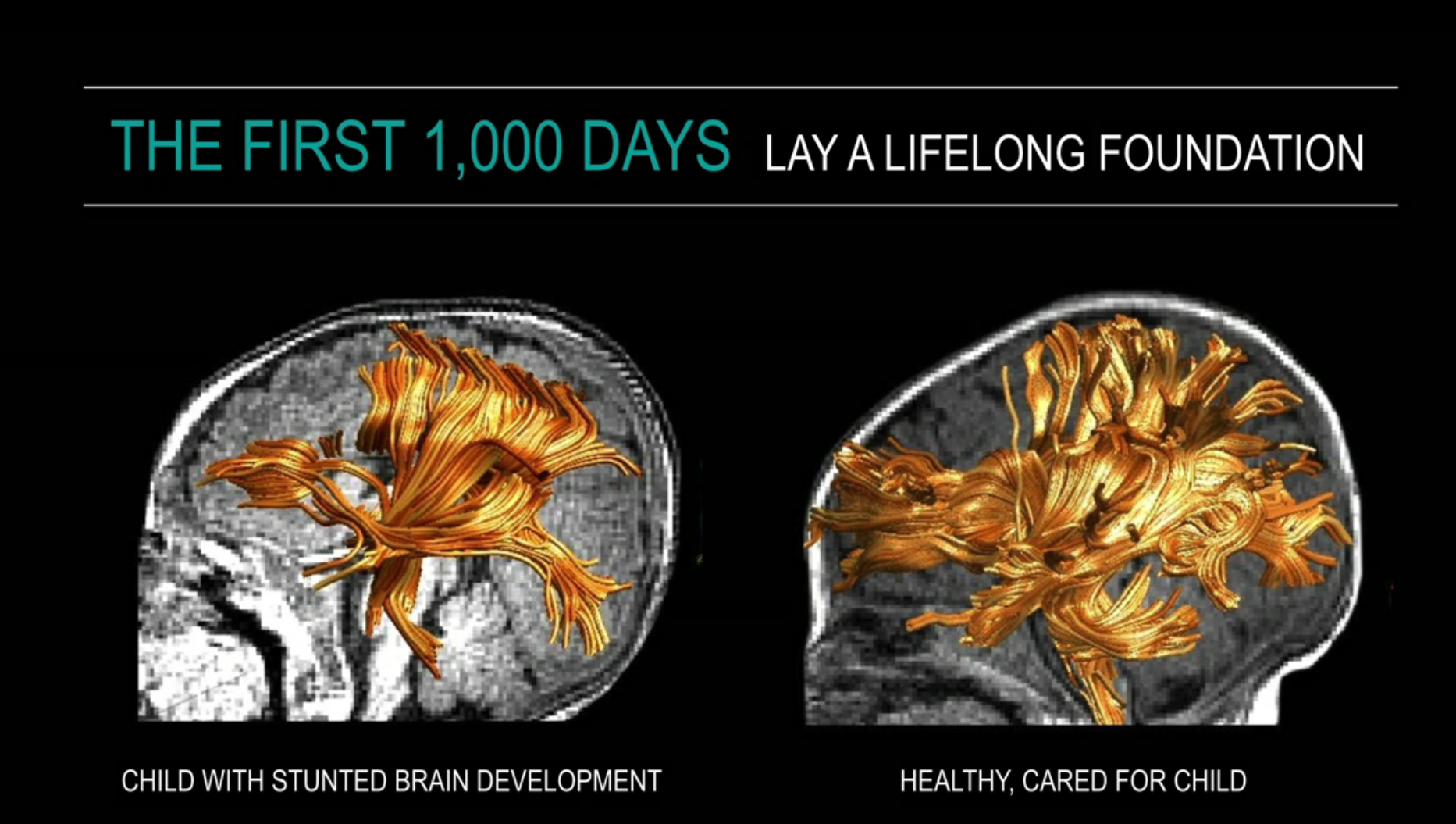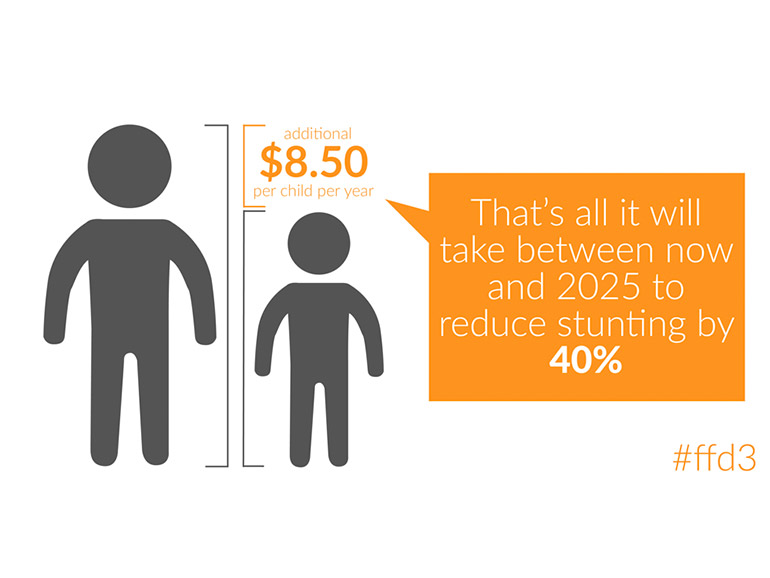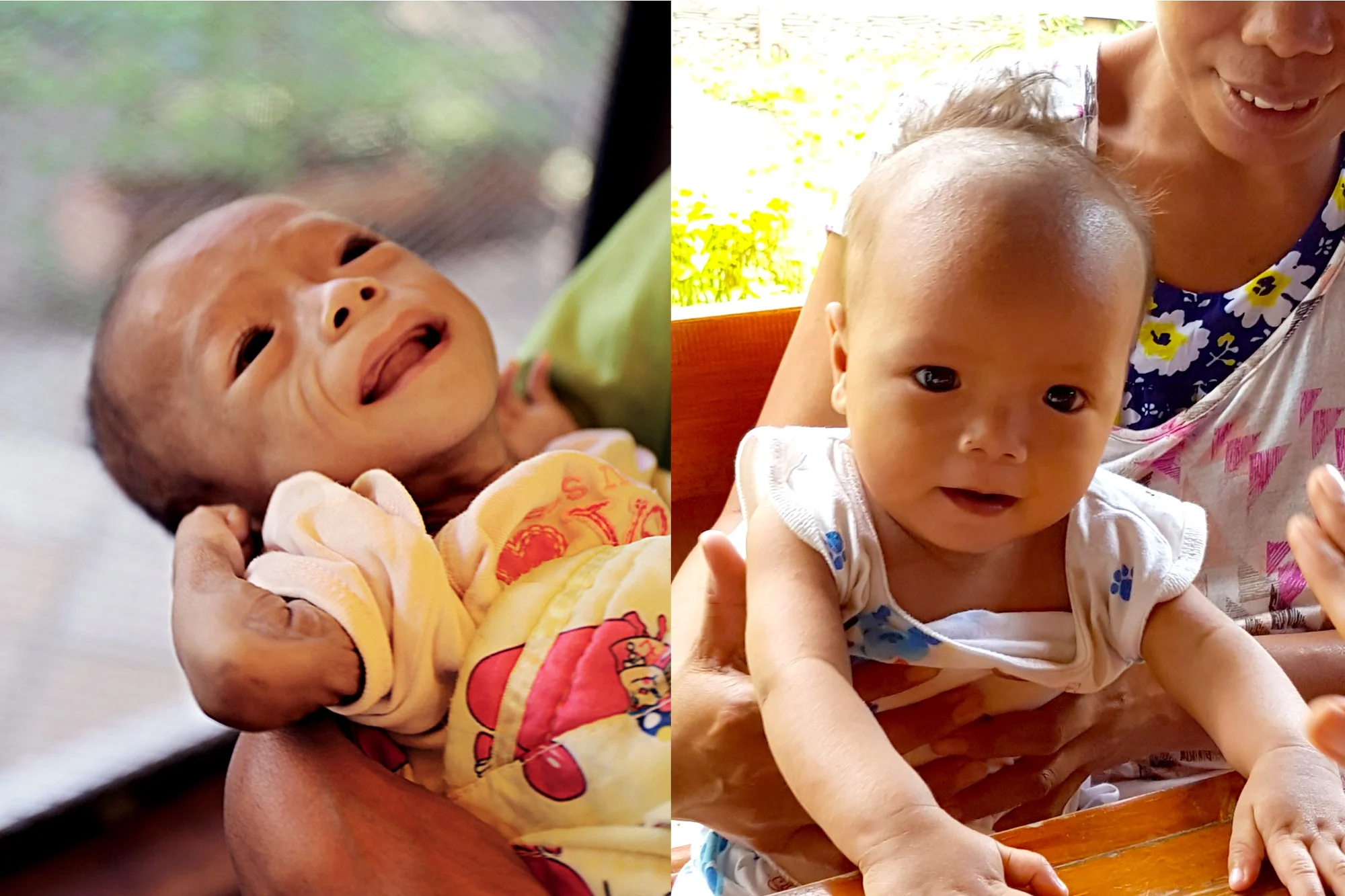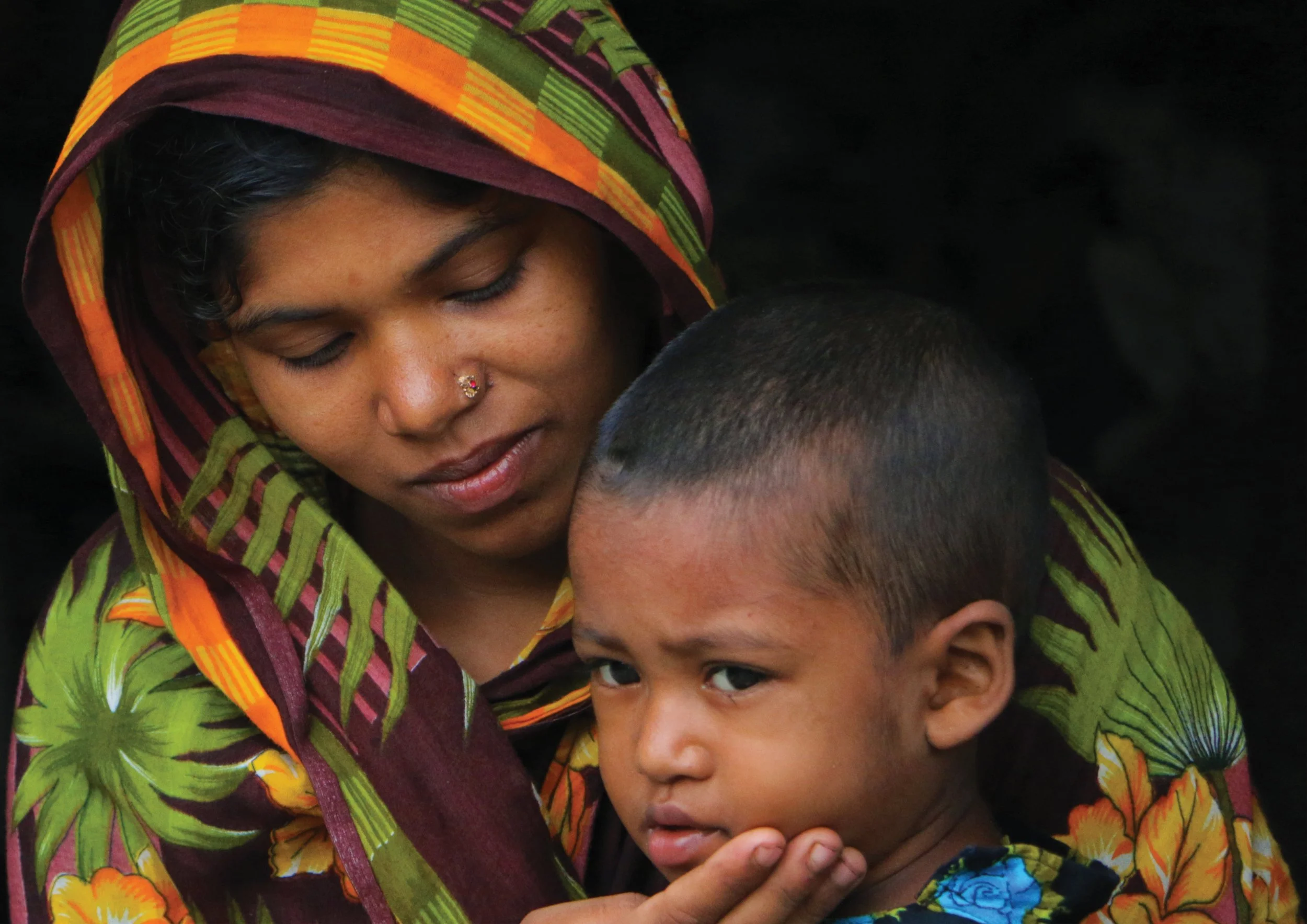Brain images of white matter fibre tracks — compared between stunted growth (left) and normal growth (right) of three-month old Bangladeshi children.
Picture © Nadine Gaab and A. Charles Nelson.
Source: Dr. Charles A. Nelson, Harvard Medical School, and others (2017).
Maternal & Child Malnutrition
Unlike extreme hunger, the issue of malnutrition is invisible.
Adequate nutrition isn't just about having food to eat. It is most importantly about the right nutrients specifically iron, iodine, zinc, folate, calcium, protein and Vitamin A. These micronutrients - also known as vitamins and minerals - play an important role in a child’s physical and mental growth.
Child growth depends on dietary intake (quality and quantity) for the first 1000 days - this refers to the crucial window period between a woman’s pregnancy and her child’s second birthday. The right nutrition during this 1,000 day window has a profound impact on a child’s ability to grow, learn and thrive — with a lasting effect.
Stunting refers to a child who is too short for his or her age.
Image source: 1,000 Days
Stunting is a condition that affects trapping generations in poverty and unfulfilled potential. Children are defined as stunted if their height is lower than age appropriate average height. Stunting can negatively impact child’s brain function,organ development and immune system.
Without the right nourishment, children's immune systems don't develop properly, leaving them vulnerable to illness and infectious disease throughout their lives. Breastfeeding babies and feeding them with balanced food provides them with the nutrients they need to be healthy.
References:
https://thousanddays.org/the-issue/why-1000-days/
https://www.unicef.org/ethiopia/Lancet_2013_Nutrition_Series_Executive_Summary.pdf
"Malnutrition is a solvable problem that if addressed improves health, longevity, quality of life, national resources and education."
Breastfeeding
Breastfeeding is the best way to ensure that a child has a healthy start to life. It is proven to be safe, accessible and cost-effective. This is why promotion of breastfeeding is crucial; more mothers need to know that breast milk is an optimal source of nutrition and a ready-made vaccine for vulnerable infants.
Appropriate Complementary Feeding
Complementary feeding should begin when breast milk alone is no longer sufficient to meet the nutritional requirements of infants. This transitional phase is a critical period of growth during which, according to WHO, nutrient deficiencies and illnesses contribute globally to higher rates of malnutrition among children under five.
Joemar Bacaltos’ weight increased from 3.3 kg in August 2016 (left) to 6 kg in December 2016 (right) after beginning treatment for severe acute malnutrition.
Photo source: Lotta Sylwander, UNICEF Philippines Country Representative ©UNICEF Philippines/2016
Treatment of Severe Acute Malnutrition (SAM)
Severe acute malnutrition is the most extreme and visible form of malnutrition. Thankfully, there have been successful efforts to develop home-based treatment for severe acute malnutrition. One of them, Ready-to-use Therapeutic Food (RUTF), is saving the lives of many severely malnourished children by ensuring rapid weight gain with consumption.
Micronutrient Supplementation for Children
Micronutrients – also known as vitamins and minerals – are essential components of a high-quality diet and have a profound impact on health. For a child, micronutrient deficiencies increase the risk of contracting and dying from infectious diseases, and compromise physical and mental development. Supplementation programmes target micronutrient deficiencies by providing children with specific micronutrients that are lacking in their regular diet.
Micronutrient Supplementation for Mothers
Micronutrient deficiencies are very common in pregnant women, due to the increased nutritional requirements of carrying a fetus. Pregnant woman with such deficiencies have a greater risk of dying during childbirth, or of giving birth to an underweight or mentally-impaired baby. Supplementation programmes target micronutrient deficiencies by providing mothers with specific micronutrients that are lacking in their regular diet.







